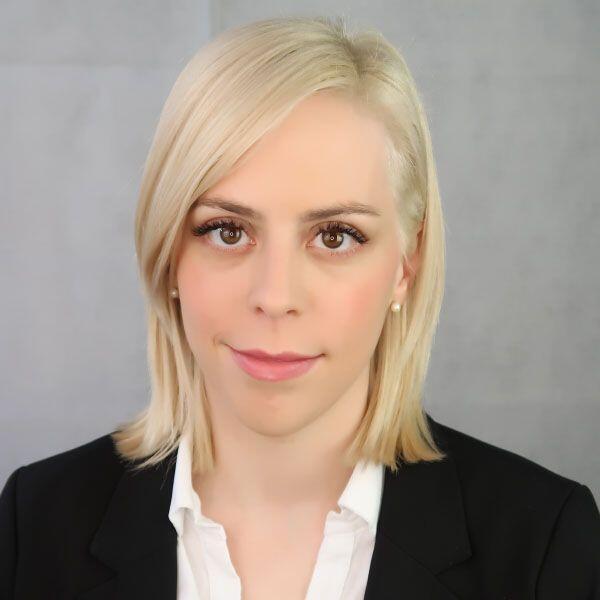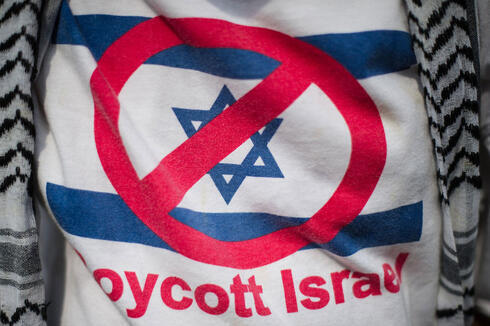Anti-Israel protesters in Britain
(Video: Craig Dillon _credit Jacob Diamond)
Facebook parent company Meta has opened a call for public submissions to their independent oversight board to review and potentially broaden their interpretation of the Arabic word "shahid" in content moderation policies.
Watchdog groups argue that this may embolden terrorist activity on the platform by loosening the moderation standards for the word as a part of Meta's Dangerous Individuals and Organizations policy.
Stories that may interest you:
Meta’s Oversight Board, which consists of 23 independent members, will accept advisory submissions from the public on the topic before any formal implementation of a policy change. Public comments will be accepted until April 17th.
Currently, the use of the word “shahid,” which translates to “martyr” in English, is prohibited in the context of praising any individual who is a member of a designated terrorist organization and carries out an act of violence.
Meta claims that the word is the most removed word on Facebook. However, the platform has issued a request for the oversight board to review and potentially revise this interpretation of the word “shahid” under the argument that it is not always used to praise terrorists or terrorist acts, and the current standards of enforcement “may result in significant over-enforcement, particularly in Arabic-speaking countries."
Tal-Or Cohen, the founder and executive director of CyberWell which tracks online antisemitism and incitement, disagrees with the assessment that the policy on the word "Shahid" is being over-enforced.
"Meta's current policy is a good foundation upon which to build, and it should not be weakened," she told Ynet. In fact, Cohen believes the current policy should be more stringently enforced, “The gaps that CyberWell found not only support the enforcement of the existing policy, they suggest that it should be strengthened.”
CyberWell has proposed using “shahid” in conjunction with the word “Jews” as well as broadening linguistic variations of the word in Arabic (feminine, misspelled, plural etc.) in order to identify and remove violent content more effectively, rather than loosening the standards of enforcement, leading to more praise of violent content on social media.
According to Meta, their current policy on the use of “shahid” relies on the designated foreign terrorist organization list (FTO) as well as other sources. Meta also confirmed that while not explicitly mentioned in their stated policy, content moderation of the word "shahid" also applies to both lone wolf terrorists, and newly developed terrorist organizations such as Lion’s Den.
CyberWell argued in their official submission to Meta's independent oversight board on the topic that the loosening of enforcement will increase pro-terror content, pointing to their recently tracked 300 examples of the use of the word “shahid” in reference to antisemitic and pro-terror content, which Meta has not removed, even under the current standards.
"CyberWell's data suggests clear steps Meta can take to optimize the current policy. Among the examples we flagged where the current policy fails to be enforced, we found that 24% of posts using the word "shaheed" and "Jew" in Arabic were promoting violent antisemitism," she said.
Though Meta did not specifically reference the Israeli-Palestinian conflict in its statement on the word "shahid", Khaled Mansour, a member of Meta's supervisory board, stated in an interview with Al Jazeera that the proposed change in policy is related to the "freedom of expression of the Palestinians." He has also accused Meta of “over-enforcing” such policies during Israel’s Operation Guardians of the Wall in 2021, meaning that the proposed policy is at least in part, a way to legitimize Palestinian praise of terrorism.
Additionally, there has been a longstanding campaign against Meta by Palestinian activist groups which claim they are unfairly targeted. One of the most prominent groups campaigning against Meta has been 7amleh, which itself has concerning associations with terrorist organizations. Incidentally, the organization has also hosted the Oversight Board at its events and has been featured at Oversight Board events, alongside Khaled Mansour.
"Meta's Oversight Board has created more transparency, discussion, and civil society engagement around content policy. However, there is evidence to suggest that anti-Israel activists, including on the Oversight Board itself, have petitioned Meta to change its shahid policy under the claim that it the current policy suppresses Palestinian voices," said Cohen.
"This is a dangerous attempt to politicize an extremely important content moderation policy that, rather than being confined to the Israeli-Palestinian conflict, is geared toward stopping the spread of terrorism."
The idea of loosening content moderation standards has also received pushback from other watchdog groups and Jewish organizations. B'nai Brith Canada, a Jewish human rights organization, expressed concern at the potential policy change and encouraged Canadians to “make their voices heard” and submit public comments opposing the change.
Sadly, the connection between online incitement (in particular Palestinian incitement) and acts of violence against Israelis has been well documented, as has the relation between online hate speech and violence globally. Content moderation plays a key role in how far incitement travels.
Cohen explained, "Content moderation policy may sound technical, but it affects the lives of real people; just ask the parents of ISIS victims who are suing social media platforms before the Supreme Court."
First published: 18:51, 04.15.23







